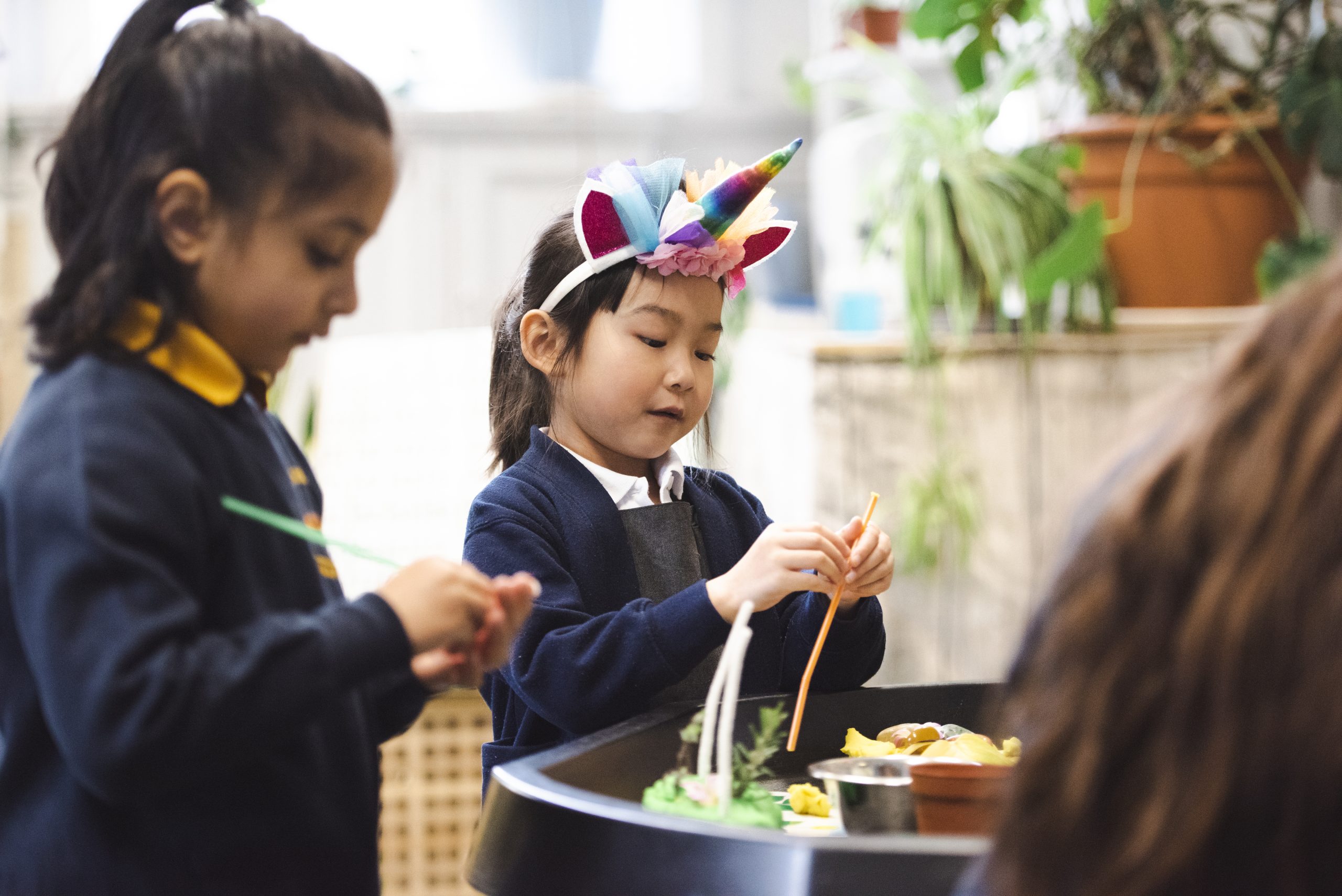Written by Fiona Kirkland, Project Officer, Play Pedagogy Award.
Reflections from a powerful online discussion about a new book, exploring what happens when school stops working for children, and how listening, belonging and play can help us shape more meaningful and inclusive approaches to learning in Scotland.
Recently, I had the chance to join a really interesting online session hosted by Dr Jo Billington, where she was joined by Dr Naomi Fisher, Dr Abigail Fisher and Eliza Fricker to talk about their new book, ‘What Can We Do When School’s Not Working?’ The discussion was full of honest reflection and it really stuck with me. The authors spoke so clearly and compassionately about what it feels like when school just doesn’t work for some children, when it becomes a place where they don’t feel safe, understood or even welcome and they warned that unless we take the time to listen, really listen, to what children are telling us, there is a real risk that we continue building a system that some children simply cannot thrive in.
They spoke about the importance of reimagining what education means, emphasising that it should offer more than academic achievement alone. Schools should be environments where children feel valued, inspired and given the opportunity to thrive. If we want school to work for every child, we must ensure it provides a genuine sense of belonging, recognises each child’s individuality and supports them to engage in learning that feels purposeful and meaningful.
We’re already seeing this in action across a wide range of Scottish schools involved in the Play Scotland Play Pedagogy Award. Developed through working closely with Education Scotland, the Award is helping schools reflect meaningfully on their practice, embed play in rich and sustainable ways and find a thoughtful balance between curriculum delivery and play pedagogy. Schools across Scotland, as far apart as Shetland, Eyemouth and Campbeltown are proudly taking part in this national journey, each one personalising its approach to reflect the needs of its children, the strengths of its staff and the unique context of its local community. In doing so, they are demonstrating that when play is placed at the centre of school life, it can enhance learning and wellbeing while supporting the curriculum in practical, creative and inclusive ways. It is encouraging to see that HM Inspectors of Education are now recognising the importance of play-based approaches, with the quality of learning through play becoming an increasingly visible part of inspection processes across all schools in Scotland.
I feel very lucky to work with schools that are doing this with real care and commitment. These are places where children are welcomed with warmth and care, where relationships matter, and where attendance is improving because children genuinely want to be there. They feel safe, valued and seen, and their learning is shaped around their interests and curiosity, whether through play, project-based learning or real-world experiences. These schools are cultivating a culture of connection and creativity, where children are active participants in their learning rather than passive recipients.
The old model of education, with rows of desks, silent classrooms and rote learning, no longer makes sense, especially now that we have a much deeper understanding of how children learn best. Research consistently shows that meaningful, hands-on experiences lead to greater engagement and stronger outcomes. When children are given time and space to explore ideas in ways that matter to them, they do not simply retain facts, they begin to understand them and start to see themselves as capable and confident learners. This is exactly what play makes possible.
The authors spoke with real honesty about how the term “school refusal” often shifts the focus onto the child instead of prompting us to reflect on the school environment itself. Naomi Fisher put it simply and powerfully:
“The problem wasn’t that I wasn’t going to school. The problem was what was happening when I got there.”
This is something I hear often in my work with Play Scotland Play Pedagogy Award schools. When a child disengages, it is not defiance, it is communication. It is a message that something is not working for them, and it is up to us as professionals to respond with curiosity and compassion rather than correction. We need to ask what the behaviour is telling us and what needs to change in the environment to better support that child.
Eliza Fricker said something that really stuck with me:
“What so many children need is that sense of being wanted, that their school is a place where they are seen, accepted and supported.”
At Play Scotland, we know that belonging isn’t a bonus. It’s the foundation for everything else.
The authors also talked about the pressure that many professionals feel when they want to take a different approach. Naomi Fisher shared that several contributors to the book did not want to be named, simply because they were worried that prioritising relationships, connection and wellbeing over traditional expectations might be seen as controversial or unprofessional. That in itself says a lot about the system we’re working in, and how hard it can be to put the child at the centre when everything around you is pulling in another direction.
Abigail Fisher offered a grounding reminder:
“Meet the young person where they are, get to know them, make that connection, and things will grow from that point.”
That is exactly what we see in schools that are embedding play pedagogy. When children are given time, trust and support to learn in ways that reflect who they are, they begin to reconnect, confidence builds, relationships grow stronger and school starts to feel like a place where they are wanted, understood and where they want to be.
The messages shared throughout the event reflect so much of what we’re already seeing in practice across Scotland. The Play Scotland Play Pedagogy Award gives schools the tools to think deeply about their approach, to plan intentionally and to balance play with curriculum goals in ways that are meaningful and manageable. It’s not about throwing everything out and starting again, and it’s certainly not about asking teachers to do more. It’s about pausing, reflecting and making thoughtful changes that build on what is already working well and what we already know about how children learn.
We know from research, practice and lived experience that play supports emotional wellbeing, builds resilience and confidence, strengthens relationships and nurtures creativity. These are not soft skills or nice extras. They are vital to how children grow, learn and make sense of the world around them. Play gives children the chance to express themselves, explore ideas, connect with others and develop the kind of lifelong skills that we know really matter. When we place value on these experiences, we are not taking anything away from learning, we are deepening it.
When play is a part of the school day from start to finish, school becomes a place where children want to be. And when that happens, we begin to see real, lasting change.
‘What Can We Do When School’s Not Working?’ Is out on Easter Monday. I’ve not had a chance to read it yet, but after hearing Naomi, Abigail and Eliza speak so openly about the real experiences that shaped the book, I’m certain it’s going to be a powerful and important read. Everything they spoke about felt so relevant and connected closely to the conversations we’re already having in schools across Scotland, and I’m really looking forward to getting stuck in.
It feels like the kind of book that anyone working with children should read, whether that’s in a school, nursery or support setting. It’s for people who want to rethink how things are done, who care about making schools more inclusive, more understanding and more focused on what children actually need. Putting children at the centre of our thinking shouldn’t feel like a big ask, it should be where we start.
Much like the Play Scotland Play Pedagogy Award, this book encourages us to slow down, take a step back and really think about what matters. It’s a reminder that relationships and connection need to come first, and that learning and wellbeing go hand in hand. When we get that balance right, school becomes a place where children genuinely want to be, and where they can do so much more than just get through the day.





